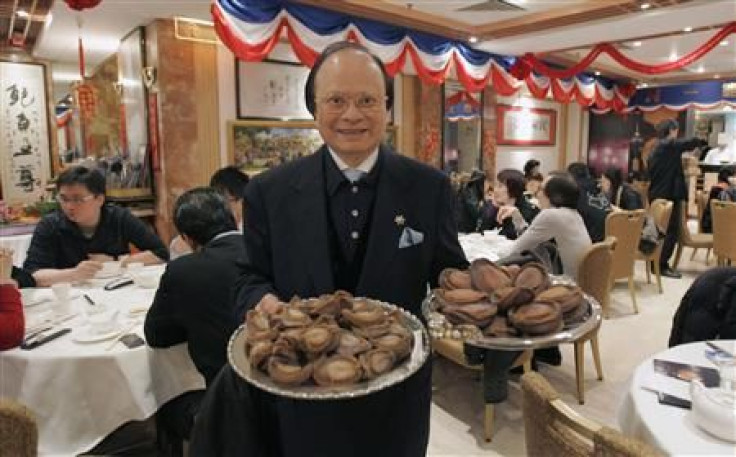Bo Xilai Trial Prompts Interest In Rare African Meat, But Exotic Food Sales Are Still Down in China

During the first day of the high-profile trial of fallen political leader Bo Xilai, the former Chongqing city Party Secretary recounted a time his son, Bo Guagua, and wife, convicted murderer Gu Kailai, indulged in a rare meat brought all the way from Africa after a trip his son had made. While China’s most popular social media Weibo went crazy guessing what the meat was, interest in exotic meats locally has plummeted.
China’s central government’s big push toward austerity has many Chinese losing their taste for traditionally expensive and exotic foods. A report by AFP says that some shopkeepers in Hong Kong that specialize in exotic seafood, like shark fin, abalone and other dried sea creatures are saying their businesses have been hurt by the crackdown. One particular market in Hong Kong, the ‘Dried Seafood Street’ is known as the center of such foods. “Beijing’s frugality campaign has driven money out of my pocket,” Leung Wing-Chiu, a 94-year old shop owner and president of the Dried Seafood & Grocery Merchants Association told the AFP.
It isn’t just suppliers that are seeing sales plummet. Restaurants and hotels that used to capitalize off banquet-style meals for officials, where such status-symbol dishes were often ordered to impress, are left with a bitter aftertaste as Beijing reins in government spending. “Demand from mainland buyers, especially hotels and restaurants, has shrunk a lot. This is particularly true for high-end goods such as dried abalone, shark fins and birds' nests,” Leung said. A shop keeper in the same area named Wong Hiu-wan, who specializes in selling birds' nests used in a traditional Chinese soup, said that the decrease in mainland demand has shifted the target market. “Now, we have to count more on local consumers, because orders from mainland hotels and restaurants have gone down dramatically,” he said.
An estimated 300 billion yuan, or roughly $49 billion, used to be the standard annual spending of China’s official’s for state-funded banquets, a figure that President Xi Jinping wants to slash. But while officials may spend less on lavish dishes, the interest of ordinary Chines in the expensive is just beginning to grow, and their tastes are veering away from the traditional.
“Sashimi, beefsteaks and foie gras look fancier to me,” Bruce Shou, a Hangzhou student and ‘foodie’ who frequently travels to Hong Kong to explore dining experiences, said in the articles. “Whereas abalones remind me of something old-fashioned and bureaucratic.”
© Copyright IBTimes 2024. All rights reserved.












